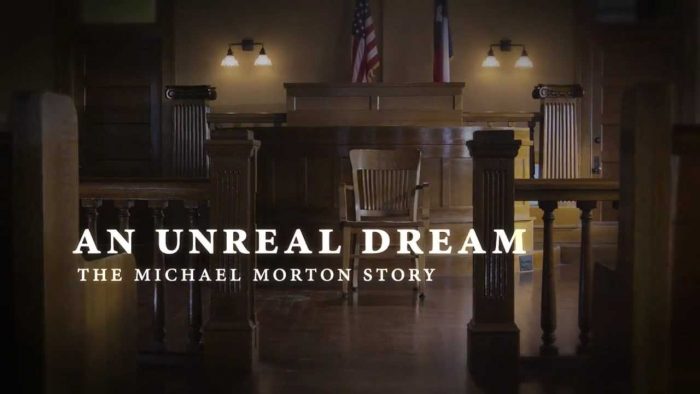
Page description
The Michael Morton story is injustice by design.
The jury received wrong information to frame Michael as the murderer in spite prosecutor knew he was not.
The Michael Morton Case: A Fight for Justice
The story of Michael Morton is one of unimaginable injustice, a nightmare where truth was buried, and a man was wrongfully condemned for a crime he did not commit. In 1987, Michael was sentenced to life in prison for the murder of his wife, Christine, despite overwhelming evidence that pointed to his innocence. The jury was misled with wrong information, and the prosecutor, knowing Michael’s innocence, chose to conceal vital evidence that could have exonerated him.
This page brings you face-to-face with the harsh realities of Michael Morton’s story—an innocent man trapped in a wrongful conviction for nearly 25 years. Through powerful imagery and a timeline of events, you’ll explore the pivotal moments that turned Michael’s life upside down, as well as the bond with his son, Eric, who grew up without his father by his side.
In addition, we delve deeper into the case, shedding light on how critical evidence was hidden, how DNA evidence later led to Michael’s exoneration, and how this tragic story brought widespread attention to flaws within the justice system.
Through a collection of 25 videos, you’ll gain insight into the emotional and legal journey that ultimately led to Michael’s freedom. An Unreal Dream is a poignant reminder of the importance of truth, the consequences of prosecutorial misconduct, and the power of perseverance in the face of overwhelming odds.
De Zaak Michael Morton: Een Strijd voor Rechtvaardigheid
Het verhaal van Michael Morton is er een van onvoorstelbaar onrecht, een nachtmerrie waarin de waarheid werd begraven en een man onterecht werd veroordeeld voor een misdaad die hij niet heeft gepleegd. In 1987 werd Michael veroordeeld tot levenslange gevangenisstraf voor de moord op zijn vrouw Christine, ondanks overweldigend bewijs dat zijn onschuld aantoonde. De jury werd misleid met verkeerde informatie, en de openbaar aanklager, die wist dat Michael onschuldig was, koos ervoor cruciaal bewijs te verbergen dat zijn onschuld had kunnen bewijzen.
Deze pagina brengt je oog in oog met de harde realiteit van het verhaal van Michael Morton—een onschuldig man die bijna 25 jaar ten onrechte vastzat. Door middel van krachtige beelden en een tijdlijn van gebeurtenissen verkennen we de sleutelmomenten die het leven van Michael op zijn kop zetten, evenals de band met zijn zoon Eric, die opgroeide zonder zijn vader aan zijn zijde.
Daarnaast duiken we dieper in de zaak en brengen we in beeld hoe cruciaal bewijs werd verborgen, hoe DNA-bewijs uiteindelijk leidde tot Michael’s vrijspraak en hoe dit tragische verhaal de aandacht vestigde op de gebreken binnen het rechtssysteem.
Via een verzameling van 25 video’s krijg je inzicht in de emotionele en juridische reis die uiteindelijk leidde tot de vrijheid van Michael. An Unreal Dream is een aangrijpende herinnering aan het belang van waarheid, de gevolgen van het wangedrag van de aanklager en de kracht van doorzettingsvermogen in het aangezicht van overweldigende tegenspoed.
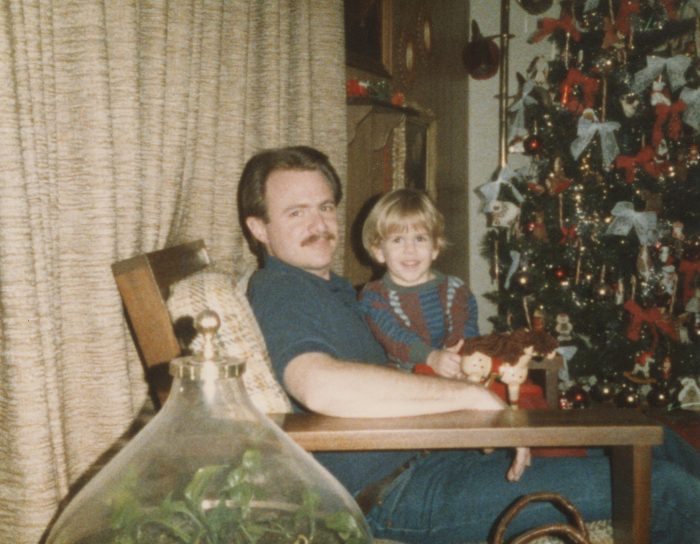
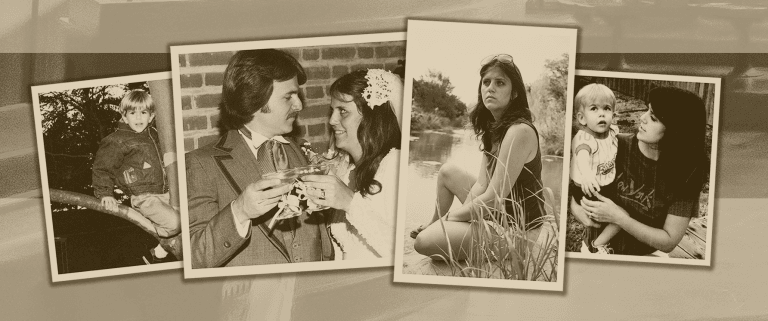
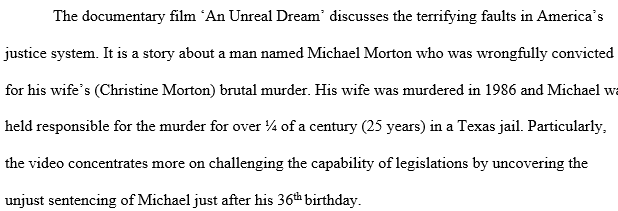
What are the main reasons for the wrongful conviction of Mr.Morton?
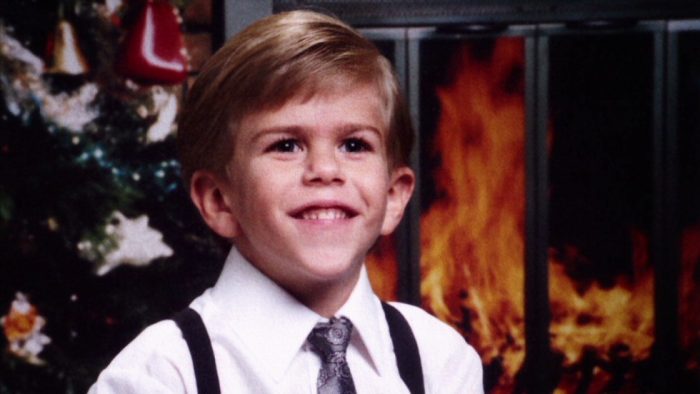
Michael Morton is a man who was wrongfully convicted of murder and spent nearly 25 years in prison before being exonerated. Here are some key points about his case:
In 1987, Michael Morton was convicted of murdering his wife Christine Morton in their home in Williamson County, Texas.
The prosecution’s case against Morton was largely based on circumstantial evidence, including testimony from a neighbor who claimed to have seen a man matching Morton’s description near the crime scene.
Despite there being no physical evidence linking Morton to the crime, he was convicted and sentenced to life in prison.
In 2011, DNA testing was conducted on a bloody bandana found near the Morton’s home, and it was found to contain the DNA of another man, Mark Alan Norwood.
Norwood was eventually charged and convicted of the murder of Christine Morton, and Michael Morton was exonerated and released from prison.
The case gained national attention due to the shocking revelation that the prosecutor in Morton’s case had withheld key evidence from the defense, including police reports that indicated another suspect might have been involved in the crime.
As a result of this misconduct, the prosecutor, Ken Anderson, was eventually disbarred and served time in jail.
Michael Morton’s case is often cited as an example of the need for criminal justice reform, particularly in regards to the disclosure of exculpatory evidence to the defense.
1 Delayed Freedom: Exclusive interview with Michael Morton
31 jul. 2014
2 Michael Morton’s journey to forgiveness
30 sep. 2016
3 HCCLA Reasonable Doubt – John Raley (Michael Morton)
10 apr. 2015
One hour
4 Nina Morrison Discusses Michael Morton Case at UVA Criminal Law Symposium
12 mrt. 2014
VERY IMPORTANT VIDEO: BEAUTIFUL CONTENT, please enjoy
5 John Raley Discusses Michael Morton Exoneration Case at OU Law
7 jun. 2012
6 Michael Morton Interview
18 aug. 2018
7 Interview: Michael Morton sits down with KXAN
8 “Getting Life” Author Michael Morton Tells His Story
25 aug. 2014
9 Michael Morton speaks out about Greg Kelley
18 aug. 2018
10 Michael Morton hearing
11 Judge rules Anderson withheld evidence in Morton case
12 MIchael Morton one-on-one: Life after prison
13 Michael Morton on Brady v. Maryland
15 jul. 2015
14 Michael Morton takes the stand in Norwood trial, day 5
15 Greg Kelley sex assault conviction called into question
16 Innocent man rebuilds life after serving 25 years in prison
5 jul. 2014
17 AN UNREAL DREAM: THE MICHAEL MORTON STORY – Official Trailer
2 dec. 2013
For more information visit: www.firstrunfeatures.com/unrealdreamdvd
In 1986 Michael Morton’s wife Christine is brutally murdered in front of their only child, and Michael is convicted of the crime. Locked away in Texas prisons for a quarter century, estranged from his son, he has years to ponder questions of justice and innocence, truth and fate. Though he is virtually invisible to society, the Innocence Project and Michael’s pro bono attorney spend years fighting for the right to test DNA evidence found at the murder scene. Their discoveries ultimately reveal that the price of a wrongful conviction goes well beyond one man’s loss of freedom.
Director Al Reinert is a two-time Academy Award nominee, as a documentary filmmaker (For All Mankind, which won the documentary Jury and Audience Awards when it premiered at the Sundance Film Festival in 1989) and as a screenwriter (Apollo 13).
AUDIENCE AWARD WINNER, DOCUMENTARY SPOTLIGHT- SXSW 2013
“A powerful story of pain, injustice, redemption, and reconciliation.” – Huffington Post
“Recounts an outrageous miscarriage of justice without a trace of manufactured melodrama or visual hyperbole. The film’s rivetingly straightforward style of storytelling is a perfect match for its subject. An inspiring tale of spiritual uplift, sympathetically detailing how religious faith gave Morton the strength to endure, and the mercy to forgive.” – Variety
“An unflinching look at how Morton was wrongfully convicted of murder and had his only son disown him.”- Associated Press
“Makes very real an innocent man’s nightmare through a cruel and broken justice system that stole his freedom, his relationship with his son and, nearly, his spirit.”- Houston Chronicle
“A gripping saga. What is most frightening is how much effort and time it took a squad of highly motivated, expert lawyers to claw Morton out of prison, even after the truth became widely apparent. If a respected, responsible citizen like Morton can be thrown in prison for decades based on such a feeble case, the film asks, who among the rest of us can consider ourselves safe?”- PopMatters
“An extraordinary film…ultimately a story of transcendence.”- Austin American Statesman
“Morton’s character fills this all-too-familiar story of injustice and absolution with a uniquely generous, moving spirit.”- Austin Chronicle
18 I Was Wrongfully Imprisoned for Killing My Wife | Michael Morton | Google Zeitgeist
16 sep. 2014
19 Michael Morton Freed in Texas
6 okt. 2011
20 Ken Anderson on Michael Morton Conviction
17 nov. 2011
21 Michael Morton Interview – Part I
22 apr. 2014
23 Innocent man: There were years I plotted revenge
4 dec. 2013
For more information visit: www.firstrunfeatures.com/unrealdreamdvd
In 1986 Michael Morton’s wife Christine is brutally murdered in front of their only child, and Michael is convicted of the crime. Locked away in Texas prisons for a quarter century, estranged from his son, he has years to ponder questions of justice and innocence, truth and fate. Though he is virtually invisible to society, the Innocence Project and Michael’s pro bono attorney spend years fighting for the right to test DNA evidence found at the murder scene. Their discoveries ultimately reveal that the price of a wrongful conviction goes well beyond one man’s loss of freedom.
Director Al Reinert is a two-time Academy Award nominee, as a documentary filmmaker (For All Mankind, which won the documentary Jury and Audience Awards when it premiered at the Sundance Film Festival in 1989) and as a screenwriter (Apollo 13).
AUDIENCE AWARD WINNER, DOCUMENTARY SPOTLIGHT- SXSW 2013
“A powerful story of pain, injustice, redemption, and reconciliation.” – Huffington Post
“Recounts an outrageous miscarriage of justice without a trace of manufactured melodrama or visual hyperbole. The film’s rivetingly straightforward style of storytelling is a perfect match for its subject. An inspiring tale of spiritual uplift, sympathetically detailing how religious faith gave Morton the strength to endure, and the mercy to forgive.” – Variety
“An unflinching look at how Morton was wrongfully convicted of murder and had his only son disown him.”- Associated Press
“Makes very real an innocent man’s nightmare through a cruel and broken justice system that stole his freedom, his relationship with his son and, nearly, his spirit.”- Houston Chronicle
“A gripping saga. What is most frightening is how much effort and time it took a squad of highly motivated, expert lawyers to claw Morton out of prison, even after the truth became widely apparent. If a respected, responsible citizen like Morton can be thrown in prison for decades based on such a feeble case, the film asks, who among the rest of us can consider ourselves safe?”- PopMatters
“An extraordinary film…ultimately a story of transcendence.”- Austin American Statesman
“Morton’s character fills this all-too-familiar story of injustice and absolution with a uniquely generous, moving spirit.”- Austin Chronicle
24 Michael Morton Case Analysis | Police and Prosecutor Misconduct
12 jul. 2021
Dr. Todd Grande
Notice
Now looking at the argument for the defence, no physical evidence tied Michael to the crime, no murder weapon was found he had no criminal history, no history of violence, the motive suggested by the state was weak, Michael had no injuries he was in a struggle, why would he kill his wife and leave his son alone where was the missing firearm and who left the footprint and the fingerprints, the prosecutor had not turned over all the notes from the police, the defence did not know about a lot of the exculpatory evidence including the man and the van and the bloody bandana. On February 17 1987 Michael Morton was found guilty of murder, he was sentenced to life in prison with the possibility of parole. Michael suffered in prison his son was taken to visit him until he was 13 when Eric no longer wanted to visit his father. Michael earned a bachelor’s degree in psychology and a master’s degree in literature while his was in prison. he was offered parole in 2010 under the condition that he expressed remorse. Michael maintained his innocence. Over the course of several years after his conviction the case against Michael started to unravel, advances in DNA testing on the fluid found on Christine’s body showed that Michael and Christine had sex days and weeks before the murder. He did not masturbate on her body after the murder. The defence learned about the bandana and other evidence. DNA testing on the blood found on the bandana revealed Christine’s DNA and DNA of an unknown man. Michaels DNA was not found. The unknown DNA was eventually matched to a man named Mark Allan Norwood, an individual with an extensive criminal history including arson, breaking and entering resisting arrest and aggravated assault with intent to kill. Mugshots of Norwood revealed he had a large moustache. Norwoods DNA was found at the scene of another similar homicide that occurred in 1988, the victim was a woman named Deborah Masters Baker.
Michael Morton was released on October 3 2011. He was exonerated. he would receive just under 2 million dollars for wrongful imprisonment.
Over some time he was able to reconnect with his son Eric. The actual killer Norwood was convicted of murder and sentenced to life in prison in 2013. In 2016 Norward was convicted of Deborah Masters Baker.
The man who prosecuted Michael Morton Ken Anderson was charged with contempt of court and evidence tampering. Under a plea bargain he was found guilty of the contempt of court. The other charge was dropped. He was sentenced to just 10 days in jail, 500 hours of community service and a 500 fine. He was given credit for one day spent in jail and after being arrested Ken Anderson would only spend five of the nine remaining in jail. This was due to good behaviour. I guess he managed not to falsely accuse anyone else when he was in jail.
Now moving o my analysis. This case illustrates how dependent the criminal justice system is on honesty from the police and prosecutors. and how easy people trust the police and prosecutors. Both Norwood and Anderson escaped any real consequences. Noutwell died of cancer. He was never charged. I doubt he would have been charged if he had survived. Anderson was convicted and served six days in jail total due their irrational and indefensible behaviour not only did Michael Morton go to prison. another victim was murdered by the actual perpetrator. It is possible the police could have stopped Norwood if they had ever suspected for a moment he existed. The false conviction of Michael Morton occurred not only because of corrupt law enforcement but due to a jury that was easily manipulated. The jury fell for the unlikely motive of being upset about not having sex when Michael Morton cried in the courtroom. They assumed he was crying tears of guilt when he testified on the stand. He tried to stay strong not to show too much emotion. this also worked against him. They assumed he was a callous monster. I find this interesting when he is crying he is guilty. When he is not crying he’s guilty. What behaviour would be consistent with not guilty. I guess when the jury was given instructions on what to do. They were never told about the not guilty possibility. The judges were like you can find the defended guilty or and then the jury cuts him off. All right that’s enough talking. We got it that’s all we need. It wasn’t only law enforcement and the jury. many people in the community were eager to believe the narrative of the police in part because it provided a them a sense of safety, it gave them certainty. they didn’t want to believe there was a killer on the loose. They wanted peace of mind. In reality the community was in danger from two Norwood and the police. Norwood because he killed people and the police because they were content to charge an innocent person. This case illustrates how easy it is to be falsely convicted. How almost anything a person does can be distorted into a malicious narrative. An imperfect relationship, complaining about a partner an unsatisfactory sex life, an note to that effect, a lack of emotion, ostensibly having the wrong emotion or the wrong reaction. The negative theme is easier to believe when there isn’t a lot of evidence of an alternate theory of the crime. In this case that evidence was available, but it wasn’t shared with the defence. The other incredible part of this case is the resilience of Michael Morton. A man who was 100 percent innocent and suffered for over 24 years in prison. He lost everything: his wife, contact with his son, his freedom, people hated him, they wouldn’t talk to him, he was isolated. People wanted him to confess to something he did not do. I think it’s a reminder that prison is a devastating punishment. Prisoners who maintain their innocence should always have their claims seriously considered. they in a position where it’s very hard to undo what’s been done to them. That if they’ve been falsely convicted, it’s really a difficult road to travel to get that reversed those are my thoughts on the case of Michael Morton.
Bemerk
Als we nu kijken naar de argumenten van de verdediging, er was geen fysiek bewijs dat Michael verbond aan de misdaad, er was geen moordwapen gevonden hij had geen crimineel verleden, geen geschiedenis van geweld, het motief dat door de staat werd gesuggereerd was zwak, Michael had geen verwondingen hij was in een worsteling, waarom zou hij zijn vrouw vermoorden en zijn zoon alleen laten waar was het vermiste vuurwapen en wie liet de voetafdruk en de vingerafdrukken achter, de aanklager had niet alle notities van de politie overhandigd, de verdediging was niet op de hoogte van veel ontlastend bewijs waaronder de man en het busje en de bebloede bandana. Op 17 februari 1987 werd Michael Morton schuldig bevonden aan moord, hij werd veroordeeld tot levenslange gevangenisstraf met de mogelijkheid van voorwaardelijke vrijlating. Michael leed in de gevangenis zijn zoon werd meegenomen om hem te bezoeken tot hij 13 was toen Eric zijn vader niet meer wilde bezoeken. Michael behaalde een bachelor in psychologie en een master in literatuur terwijl hij in de gevangenis zat. In 2010 werd hem voorwaardelijke vrijlating aangeboden op voorwaarde dat hij berouw toonde. Michael hield vol dat hij onschuldig was. In de loop van de jaren na zijn veroordeling begon de zaak tegen Michael te ontrafelen. DNA-onderzoek op de vloeistof die op het lichaam van Christine was gevonden wees uit dat Michael en Christine dagen en weken voor de moord seks hadden gehad. Hij masturbeerde niet op haar lichaam na de moord. De verdediging kwam meer te weten over de bandana en ander bewijsmateriaal. DNA-onderzoek op het bloed dat op de bandana werd gevonden, toonde het DNA van Christine aan en DNA van een onbekende man. Michaels DNA werd niet gevonden. Het onbekende DNA werd uiteindelijk gematched met een man genaamd Mark Allan Norwood, een individu met een uitgebreid crimineel verleden waaronder brandstichting, inbraak, verzet bij arrestatie en zware mishandeling met de bedoeling te doden. Mugshots van Norwood toonden aan dat hij een grote snor had. Norwoods DNA werd gevonden op de plaats van een andere soortgelijke moord die plaatsvond in 1988, het slachtoffer was een vrouw genaamd Deborah Masters Baker.
Michael Morton werd op 3 oktober 2011 vrijgelaten. Hij werd vrijgesproken. Hij zou iets minder dan 2 miljoen dollar krijgen voor onterechte opsluiting.
Na verloop van tijd was hij in staat om weer contact te maken met zijn zoon Eric. De werkelijke moordenaar Norwood werd in 2013 veroordeeld voor moord en tot levenslang. In 2016 werd Norward veroordeeld voor Deborah Masters Baker.
De man die Michael Morton vervolgde Ken Anderson werd aangeklaagd voor minachting van het hof en geknoei met bewijsmateriaal. Onder een plea bargain werd hij schuldig bevonden aan de minachting van het hof. De andere aanklacht werd ingetrokken. Hij werd veroordeeld tot slechts 10 dagen gevangenisstraf, 500 uur dienstverlening aan de gemeenschap en een boete van 500 euro. Hij kreeg krediet voor één dag die hij in de gevangenis had doorgebracht en na zijn arrestatie zou Ken Anderson slechts vijf van de negen resterende dagen in de gevangenis doorbrengen. Dit was te danken aan goed gedrag. Ik denk dat hij erin geslaagd is om niemand vals te beschuldigen toen hij in de Nu over naar mijn analyse. Deze zaak illustreert hoe afhankelijk het strafrechtsysteem is van de eerlijkheid van politie en aanklagers.en hoe gemakkelijk mensen de politie en aanklagers vertrouwen. Zowel Norwood als Anderson ontsnapten aan echte gevolgen. Norwood stierf aan kanker. Hij werd nooit aangeklaagd. Ik betwijfel of hij zou zijn aangeklaagd als hij het had overleefd. Anderson werd veroordeeld en zat in totaal zes dagen in de gevangenis door hun irrationele en onverdedigbare gedrag ging niet alleen Michael Morton naar de gevangenis. een ander slachtoffer werd vermoord door de eigenlijke dader. Het is mogelijk dat de politie Norwood had kunnen aanhouden als ze ook maar een moment het bestaan van hem hadden vermoed. De valse veroordeling van Michael Morton was niet alleen te wijten aan corrupte rechtshandhaving, maar ook aan een jury die gemakkelijk te manipuleren was. De jury viel voor het onwaarschijnlijke motief van het niet hebben van seks toen Michael Morton huilde in de rechtszaal. Ze veronderstelden dat hij tranen van schuld huilde toen hij in de getuigenbank zat. Hij probeerde sterk te blijven en niet te veel emotie te tonen. Dit werkte ook tegen hem. Ze namen aan dat hij een gevoelloos monster was. Ik vind dit interessant. Als hij huilt, is hij schuldig. Als hij niet huilt, is hij schuldig. Welk gedrag zou overeenkomen met niet schuldig. Ik denk dat toen de jury instructies kreeg over wat te doen. Ze werden nooit verteld over de niet schuldig mogelijkheid. De rechters zeiden dat je de verdachte schuldig of onschuldig kon vinden en dat de jury hem afkraakte. Oké, dat is genoeg gepraat. We hebben het, dat is alles wat we nodig hebben. Het was niet alleen de rechtshandhaving en de jury. Veel mensen in de gemeenschap wilden graag het verhaal van de politie geloven, deels omdat het hen een gevoel van veiligheid gaf, het gaf hen zekerheid. Ze wilden niet geloven dat er een moordenaar rondliep. Ze wilden gemoedsrust. In werkelijkheid was de gemeenschap in gevaar door twee Norwood en de politie. Norwood omdat hij mensen vermoordde en de politie omdat ze tevreden waren met het aanklagen van een onschuldig persoon. Deze zaak illustreert hoe gemakkelijk het is om valselijk veroordeeld te worden. Hoe bijna alles wat iemand doet kan worden verdraaid tot een kwaadaardig verhaal. Een onvolmaakte relatie, klagen over een partner een onbevredigend seksleven, een briefje van die strekking, een gebrek aan emotie, ogenschijnlijk de verkeerde emotie hebben of de verkeerde reactie. Het negatieve thema is gemakkelijker te geloven wanneer er niet veel bewijs is voor een alternatieve theorie van het misdrijf. In dit geval was dat bewijs wel beschikbaar, maar werd het niet gedeeld met de verdediging. Het andere ongelooflijke aan deze zaak is de veerkracht van Michael Morton. Een man die 100 procent onschuldig was en meer dan 24 jaar in de gevangenis heeft moeten lijden. Hij verloor alles: zijn vrouw, het contact met zijn zoon, zijn vrijheid, mensen haatten hem, ze wilden niet met hem praten, hij was geïsoleerd. Mensen wilden dat hij iets zou bekennen wat hij niet gedaan had. Ik denk dat het een herinnering is dat gevangenisstraf een verwoestende straf is. Gevangenen die volhouden onschuldig te zijn, moeten hun eisen altijd serieus in overweging nemen. Ze bevinden zich in een positie waarin het erg moeilijk is om ongedaan te maken wat hen is aangedaan. Als ze ten onrechte veroordeeld zijn, is het een moeilijke weg om dat terug te draaien. Dat zijn mijn gedachten over de zaak van Michael Morton. gevangenis zat.
25 When prosecutors get it wrong in the courtroom
28 nov. 2013
26 DNA evidence frees innocent man who spent 25 years in jail
6 dec. 2013
27 Michael Morton and the justice system – 6 pm News
28 mrt. 2012
28 He Spent 25 Years in Prison and was INNOCENT!
Back to menu IMPORTANT CONTENT Listening recommended
29 EXCLUSIVE: Greg Kelley reacts to his overturned child sex assault conviction | KVUE
6 nov. 2019
31 mei 2017
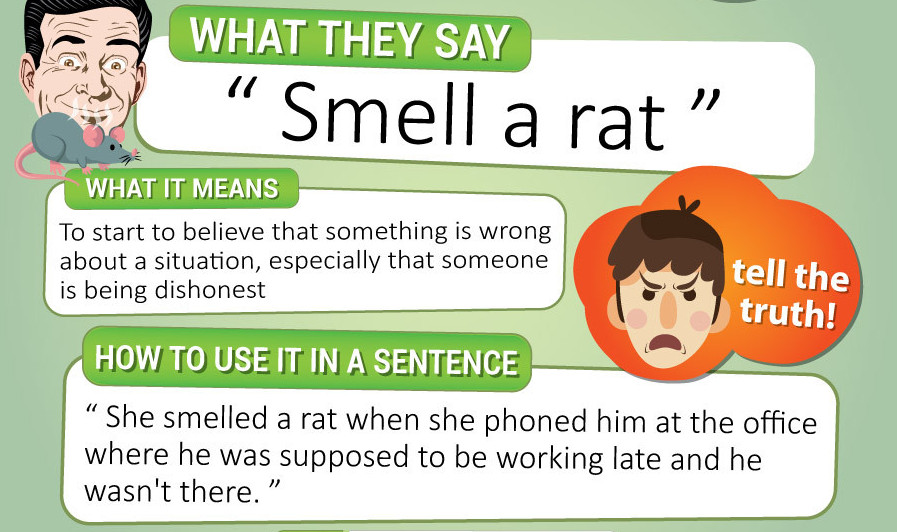

30 Screwed Robot Scientist Prank
28 jan. 2014
Christiano José Jabur
8 jaar geleden